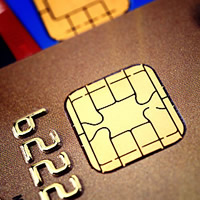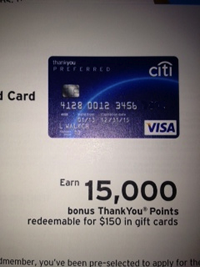Understanding Credit Cards: Top Credit Card Mistakes
by Amy Lillard
(12/12/2012) Credit and credit cards are an integral part of our economic system today. But there is a lot of misinformation and misunderstandings about credit. In this continuing series, we examine key concepts, tips and best practices when it comes to credit cards.
Having a credit card affords you enhanced buying power, but it can also get you in trouble with debt. Making smart decisions with your card is the key to achieving the former without the latter. That means avoiding some key mistakes.
• Buying more. Many credit card holders can fall prey to the idea of “free money.” Having a convenient card available when cash isn’t may make it feel like you can buy more. But you always have to pay it back, and with extreme interest. It helps, then, to keep track of what you’re buying, whether it’s through keeping and noting receipts, writing down purchases in a notebook, or other method to prevent ugly surprises.
• Paying late. Whether it’s intentional or not, late payments can raise your interest rates and cause late fees, increasing the amount you need to pay over time. It adds up quickly, and repeated lateness can cause dings to your credit report, which impacts your overall buying power. One of the best ways to avoid accidentally paying late is using the power of online payment. You can set up automatic payments through an online account, and avoid the extra time it takes to receive a mailed payment.
• Paying only the minimum. Credit card companies only require a small percentage of your total bill each month, which can seem like a good deal. However, each month a balance remains on the card, it adds to the total interest and fees on the account. Which increases the amount of money you eventually need to pay. Instead, pay as much as you can each month to eliminate this accumulation of debt.
• Spiking your balance. If you are maxing out your cards, it reflects poorly on your spending habits and impacts your credit score. Plus, it means that much more you have to pay back over time. Instead, try to keep your balance within 30 percent of your overall limit.
• Taking the first offer. Just because you qualify for a credit card offer doesn’t mean it’s the best one for you. Instead use the power of online shopping to compare cards and find the one with the best rates, perks and other things important to you.
• Forgetting about rewards. Accumulating points on rewards cards and then not doing anything with them amounts to wasted money. Points may lose value over time, or fees may take effect. Plus, many cards offer standard perks that some owners forget about, like rental car insurance, purchase protection, extended warranties, and travel insurance. But do remember this — don’t sign up for a card with rewards if you don’t plan to use them, as they may charge higher interest rates for the benefits.
For Additional Reading:
10 Costly Credit Card Mistakes to Avoid This Holiday Season: http://www.aarp.org/money/credit-loans-debt/info-11-2012/holiday-credit-mistakes-slideshow.html#slide1
10 Worst Credit Card Mistakes: http://www.creditcards.com/credit-card-news/help/worst-credit-card-mistakes-6000.php
5 Credit Card Mistakes to Avoid: http://www.bankrate.com/finance/credit-cards/5-credit-card-mistakes-to-avoid-making-1.aspx
11 Credit Card Mistakes to Avoid: http://www.kiplinger.com/slideshow/credit-card-mistakes/1.html
Other related articles:
Understanding Credit Cards: Credit Card Penalties
Understanding Credit Cards: How are Credit Cards Processed?
Understanding Credit Cards: How To Read a Credit Card Statement
Understanding Credit Cards: What are Your Rights as a Credit Card Holder?
Understanding Credit Cards: Credit Card Fees
Understanding Credit Cards: Choosing a Card

- Credit Card Rewards Programs
- Top Credit Card Mistakes
- Credit Card Penalties
- How are Credit Cards Processed?
- How To Read a Credit Card Statement
- What are Your Rights as a Credit Card Holder?
- Credit Card Fees
- What are Balance Transfers?
- Finance Charges Explained
- Choosing a Card
- Understanding Credit Cards: Do's and Don'ts
- Understanding Credit Cards: Managing Interest
- Feds Clamp Down on Credit Card Abuses
- Credit Card Rules Begin to Change; Issuers Slash and Burn
- Credit Card Conflict: Banks vs Consumers
- Banks Charging Customers for NOT Using Credit Cards
- Secured Credit Card Shopping Tips
- Credit Card Accountability Responsibilty & Disclosure Act - CARD Act
- Consumer Financing Shifts to Credit Cards
- Credit Card Default: The Next Wave?
- Overdraft Fee Rule - Money Maker for Banks
- Credit Card Reform Ready to Take Effect
- The Pros & Cons of Credit Card Reform
- Credit CARD Act Provides Protection for Young Consumers
- Credit cards more transparent, but problems remain
- CARD Act eases fear of plastic
- Banks winning overdraft fee war, consumers losing billions
- Now checking account banks pull the wool over your eyes
- Check out high-yield checking, ring up more returns
- Debit Cards vs Credit Cards
- New plastic doesn't have to melt down your credit score
- Debit card overdraft fee APRs soar higher than 3,000 percent




